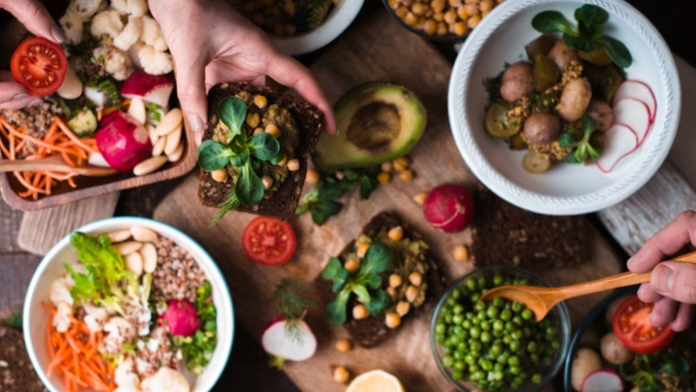As a host, accommodating dietary restrictions can sometimes feel like a daunting task. When it comes to hosting vegans, the pain of limited choices and the fear of not being able to please everyone can be overwhelming. However, fear not! With a little knowledge and some simple tricks up your sleeve, you can effortlessly create a memorable and satisfying vegan dining experience.
So, here’s your guide through the foods you should never serve your plant-based guests, ensuring that you avoid common pitfalls and embrace vegan-friendly options. We’ll also provide you with easy, no-brainer dishes that will not only meet your guests’ dietary requirements but also make you stand out as a thoughtful and versatile host. So, let’s dive in and discover how to create a delicious vegan menu that will leave your guests impressed and fully satisfied!
- Red Candy: Red candies can come in various forms, such as gummy bears or hard candies. It’s important to check the ingredients as some red candies may contain animal-derived ingredients like gelatin or carmine. Look for vegan-certified or gelatin-free alternatives to ensure they are suitable for vegan guests.
- Jelly Beans: Traditionally, jelly beans are made with gelatin, which is derived from animal collagen. However, vegan-friendly jelly beans made with plant-based gelling agents, like pectin, are available. These options are free from animal products and suitable for vegans.
- Orange Juice: Orange juice is typically vegan-friendly as long as it doesn’t contain any added animal-derived ingredients. Check the label to ensure it’s not fortified with vitamin D3, which can be sourced from animals.
- Non-Dairy Creamer: Non-dairy creamers are specifically designed to be free from animal products and are suitable for vegans. They are typically made from plant-based ingredients like soy, almond, or coconut milk. Just be sure to check the label for any potential hidden animal-derived ingredients.
- Peanuts: Peanuts are a vegan-friendly snack, packed with protein and healthy fats. They can be served in their natural form, as peanut butter, or in various dishes like peanut chaat or spicy peanut snacks.
- Sugarcane: Sugarcane is a natural plant-based snack that is vegan-friendly. It can be enjoyed by chewing on the raw sugarcane stalk or by extracting the juice for a refreshing beverage.
- Bread: Most bread is vegan-friendly, but it’s always good to double-check the ingredients. Avoid breads that contain eggs, dairy, or honey, as they are not suitable for vegans. Opt for plain bread or explore specialty vegan bread options.
- Marshmallows, Gummy Bears, and Jell-O: Traditional marshmallows, gummy bears, and Jell-O are typically made with gelatin, which is derived from animals. However, vegan alternatives made with plant-based gelling agents are available. Look for gelatin-free marshmallows and gummy bears or agar-agar-based Jell-O substitutes.
- Margarine: Margarine can be vegan-friendly if it is made with plant-based oils and doesn’t contain any animal-derived ingredients. Check the label to ensure it is free from dairy or other animal products.
- Wine: Wine is generally considered vegan, but it’s important to note that some winemaking processes may involve fining agents that are derived from animal products. Look for wines labeled as vegan or contact the producer for clarification.
- Refried Beans: Refried beans are typically vegan-friendly as they are made from mashed beans, spices, and seasonings. However, some recipes may include animal fats or lard, so it’s best to check the ingredients or prepare homemade vegan refried beans.
When serving snacks to vegans, it’s crucial to read ingredient labels and opt for products specifically labeled as vegan or plant-based to ensure they align with their dietary preferences.



